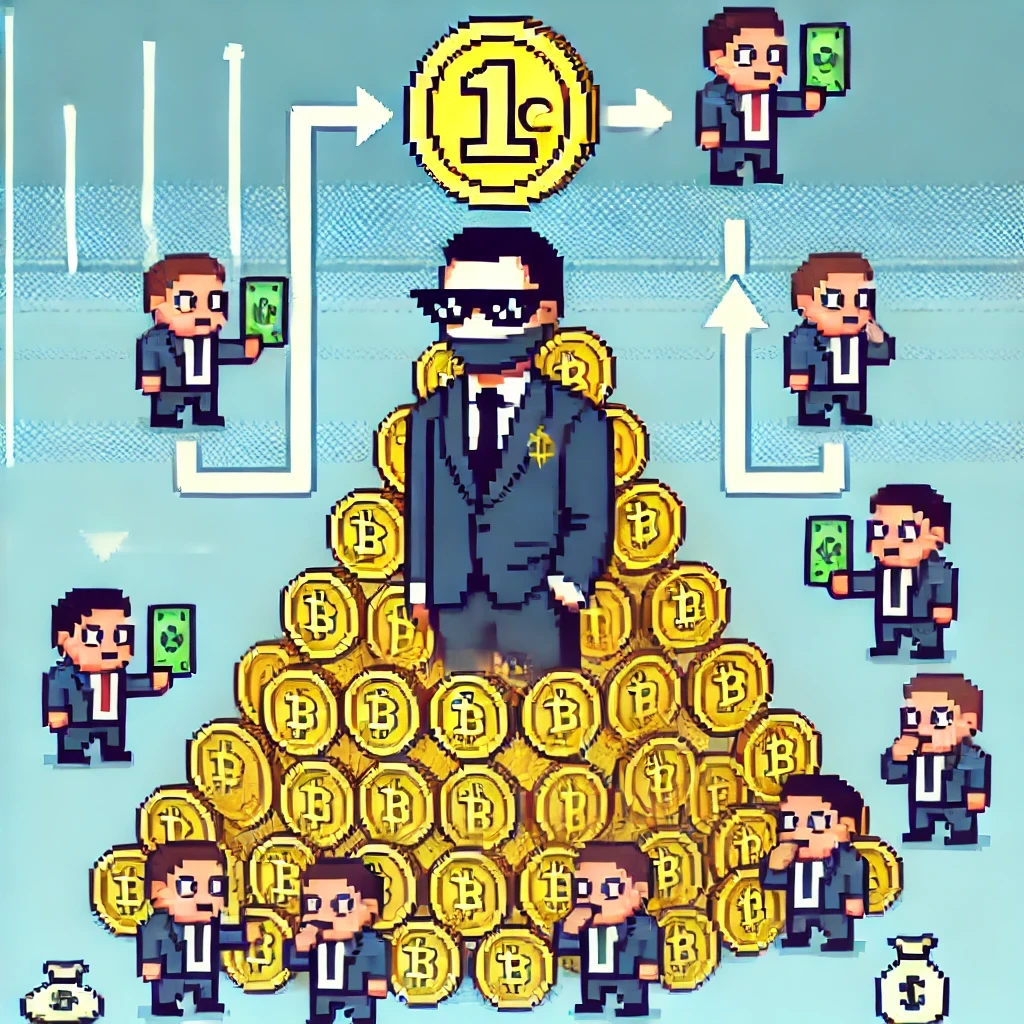
Introduction: The Arrest of Pavel Durov
In August 2024, Pavel Durov, the founder of Telegram, was arrested in Paris, an event that sparked widespread attention and discussion within the cryptocurrency community. Durov's arrest not only had a direct negative impact on the Toncoin project, leading to a sharp decline in its market performance, with significant drops in both price and trading volume, but also highlighted the legal and regulatory risks in the cryptocurrency sector. Toncoin is a cryptocurrency project developed on the Telegram Open Network (TON), aimed at providing a high-speed, secure, and scalable blockchain network. However, Durov's arrest, due to allegations of involvement in illegal trading and possession and distribution of child pornography, cast a shadow over the project's future.
Following the news of Durov's arrest, the Kremlin quickly stated that it was unaware of any meeting between President Putin and Durov and declined to comment on the arrest of a defense official closely related to former Defense Minister Shoigu. Meanwhile, the TON Society launched a campaign urging French authorities to release Durov, which has garnered over 4 million signatures, demonstrating community support for Durov. Additionally, Russia warned the French government against taking political action in Durov's case, further complicating the situation.
Durov faces charges including assisting in the management of an illegal trading platform, refusing to provide information required for judicial surveillance, and participating in the creation and distribution of programs and child pornography that attack data systems, among six counts. At the same time, Durov is also under investigation in Switzerland due to a criminal complaint filed by his former partner Irina Bolgar, alleging child abuse. These charges surfaced after Durov's recent arrest in France and are part of a broader legal controversy.
As uncertainty in the Toncoin market increased, investors began seeking other cryptocurrencies as a safe haven. Ethereum, with its revolutionary smart contract capabilities and wide-ranging applications across multiple sectors, became the preferred choice for investors. Ethereum's price has risen over 62.66% in the past year and has maintained relative stability amid market fluctuations. On the other hand, the emerging blockchain project Rollblock has also attracted investor attention, ensuring transparency and fairness in online gaming through blockchain technology, providing a secure and reliable long-term investment option.
1. The Collapse of Sam Bankman-Fried
In November 2022, a shocking event unfolded in the cryptocurrency sector: Sam Bankman-Fried (SBF), the founder of the FTX exchange, was arrested in the Bahamas. FTX was once one of the largest cryptocurrency trading platforms globally, known for its exceptional liquidity and diverse financial products. However, as a series of shocking allegations emerged, SBF's financial empire collapsed.
The catalyst for the event was a report released by CoinDesk, which revealed that FTX's sister company, Alameda Research, held a significant amount of FTX-issued FTT tokens, raising concerns about FTX's liquidity. Shortly thereafter, FTX filed for bankruptcy protection within a month, and newly appointed CEO John J. Ray III revealed in court documents and congressional testimony the chaos and governance failures within FTX, pointing out serious issues of commingling customer and company assets, leading to billions of dollars in losses.
SBF's arrest was a direct result of a series of criminal charges brought against him by U.S. authorities. He was charged with wire fraud, securities fraud, money laundering, and related conspiracy charges. The SEC also planned to bring charges against him for violations of securities laws. The Bahamas indicated that they intended to process the extradition request swiftly under Bahamian law and treaty obligations with the U.S.
This event not only dealt a devastating blow to SBF personally but also had far-reaching effects on the entire cryptocurrency market. Investor confidence in cryptocurrency exchanges was severely shaken, and the demand for regulation in the cryptocurrency industry became increasingly urgent. SBF's case became a typical representation of the lack of regulation and insufficient risk management in the cryptocurrency industry, prompting a global reassessment of the operational models of cryptocurrency exchanges.

2. The Challenges of Zhao Changpeng
Zhao Changpeng, the founder of Binance, underwent a significant sentencing hearing on May 1, 2024. This hearing was due to his guilty plea in the U.S. for violating the Bank Secrecy Act and reaching a settlement agreement of $4.3 billion with authorities. Although the U.S. Department of Justice initially recommended a 36-month prison sentence, Judge Richard Jones ultimately decided to sentence Zhao Changpeng to 4 months in prison. This ruling took into account his cooperative attitude and the support letters from various sectors of society.
This incident had a significant impact on Binance's global operations and reputation, prompting other exchanges to strengthen their compliance standards. After the hearing, Zhao Changpeng stated that he would use this time to reflect on his actions and plan for future developments, particularly in the education sector. This not only demonstrated his positive attitude towards the future but also helped him shape a responsible image in the public eye.
Despite Zhao Changpeng's willingness to show remorse, his case still brought considerable shock to Binance. As one of the largest cryptocurrency exchanges globally, Binance had to reassess its compliance policies and implement stricter measures to ensure the legality of its operations. This incident also served as a wake-up call for the entire cryptocurrency industry, reminding all practitioners of the necessity to comply with the law and assume corresponding social responsibilities.
Zhao Changpeng's experience is not only a personal test for him but also a warning for the entire cryptocurrency industry. As global regulatory scrutiny of cryptocurrencies continues to strengthen, his case will become an important reference for future discussions, driving the industry towards a more compliant and healthier direction.

3. The Predicament of Alex Mashinsky
Alex Mashinsky, the former CEO of Celsius Network, a decentralized finance platform offering cryptocurrency lending and yield services, was arrested in 2023 on charges of misleading investors and defrauding users of billions of dollars, an event that sent shockwaves through the cryptocurrency sector.
Celsius Network was once a leading player in the cryptocurrency lending market, attracting a large number of users to lend and invest in cryptocurrencies through its platform. However, following the news of Mashinsky's arrest, Celsius Network's operations were severely impacted, and user trust in the platform plummeted. This incident not only dealt a direct blow to Celsius Network but also sparked profound reflections on security and compliance across the entire decentralized finance (DeFi) sector.
The reasons for Mashinsky's arrest involved misconduct during the operation of Celsius Network, including misleading investors and defrauding users, which ultimately led to billions of dollars in financial losses. This incident highlighted the issues of regulatory gaps and insufficient risk management accompanying the rapid development of the cryptocurrency industry.
As the situation unfolded, Celsius Network's users began to worry about the safety of their funds and expressed doubts about the security of other DeFi platforms. This incident prompted regulators and industry participants to reassess the risks in the DeFi space and seek measures to enhance regulation and improve transparency. In the long run, the arrest of Mashinsky may drive the cryptocurrency industry towards a more regulated and secure direction, although it may cause some short-term shocks to market confidence.

4. The Flight of Do Kwon
Do Kwon, the founder of the Terra/Luna blockchain platform, which aimed to provide stable cryptocurrency solutions through algorithmic stablecoins, was arrested in Montenegro in March 2023 for allegedly using forged travel documents, an event that drew global attention.
Kwon's arrest marked the end of his life on the run. Prior to this, he had traversed Asia and Europe, attempting to evade authorities after the collapse of the $40 billion cryptocurrency LUNA. The collapse of LUNA and its algorithmic stablecoin TerraUSD resulted in billions of dollars in investor losses, becoming one of the largest disasters in cryptocurrency history. U.S. and South Korean authorities launched investigations against Kwon, accusing him of causing significant losses to investors through false and misleading statements.
After his arrest, Kwon faced extradition requests from both South Korea and the U.S., with prosecutors believing he could face severe penalties for financial crimes. This incident not only dealt a devastating blow to Kwon personally but also severely impacted the Terra/Luna community, with many investors losing confidence in the platform. More broadly, this event raised questions about the viability of algorithmic stablecoins, prompting deep reflections on the regulation and compliance of cryptocurrencies both within and outside the industry.
Kwon's flight and subsequent arrest revealed the potential risks and uncertainties in the cryptocurrency industry, prompting investors and regulators to reassess the future of this emerging field.

5. The OneCoin Scam
Karl Sebastian Greenwood and Ruja Ignatova are the co-founders of the OneCoin project, a multi-level marketing fraudulent cryptocurrency widely referred to as a "crypto Ponzi scheme." OneCoin lured investors worldwide to invest large sums of money through false statements and misleading marketing tactics.
Greenwood was arrested in 2023, while Ignatova remains at large. Greenwood was sentenced to 20 years in prison by the U.S. Attorney's Office for the Southern District of New York and ordered to pay approximately $300 million in forfeiture. He was charged with conspiracy to commit wire fraud and conspiracy to commit money laundering, crimes that resulted in millions of victims and billions of dollars in losses.
Ignatova is wanted by the U.S. State Department, which has offered a $5 million reward for information leading to her location. She was placed on the FBI's Ten Most Wanted Fugitives list in 2022. The High Court in London also issued a global asset freeze order, freezing assets related to the OneCoin fraud, including those associated with Ignatova.
The exposure of this Ponzi scheme has had a profound impact on global cryptocurrency regulation and investor protection policies. It serves as a reminder for regulators and investors to remain vigilant against fraud in the emerging fintech sector and emphasizes the necessity for strict scrutiny and regulation of cryptocurrency projects. The OneCoin case has become a landmark event in the global fight against financial crime and in strengthening international cooperation to track and punish fraudsters.

Conclusion and Analysis
In the world of cryptocurrency, regulation plays a crucial role. As cryptocurrencies gradually become part of the financial system, the risks and complexities they bring are increasingly prominent, necessitating appropriate regulation to protect investors, maintain market stability, and prevent illegal activities such as money laundering and terrorist financing.
The challenge for regulators lies in how to formulate rules that protect investors while maintaining market vitality without stifling innovation. Additionally, regulation must address the challenges posed by the global nature of cryptocurrencies, as differences in regulatory policies between countries and regions complicate the pursuit of unified global regulation. Regulators must not only keep pace with rapidly changing technology but also coordinate effectively internationally to avoid regulatory arbitrage.
Moreover, regulatory actions often reflect conflicts of interest and geopolitical struggles between nations. For instance, the actions taken by the U.S. against Binance and Zhao Changpeng are not only aimed at maintaining stability in financial markets but also at diminishing China's influence in the global cryptocurrency market. Similarly, the Do Kwon and Terra/Luna incident has sparked judicial cooperation and extradition disputes between South Korea and the U.S.
These events indicate that regulation in the cryptocurrency sector is not merely a technical and legal issue but also part of the political gamesmanship between nations. Countries may leverage regulatory measures to advance their interests and strengthen their influence in the global cryptocurrency market. In this process, technological sovereignty has become a new focal point of competition among nations.
Overall, regulation in the cryptocurrency sector is a complex issue that involves not only technological innovation and market stability but also international cooperation and political struggles. Regulatory agencies need to continuously adapt to market changes, balancing the interests of various parties to promote the healthy development of the cryptocurrency sector. At the same time, the international community must enhance cooperation to collectively address the global challenges posed by cryptocurrencies.
免责声明:本文章仅代表作者个人观点,不代表本平台的立场和观点。本文章仅供信息分享,不构成对任何人的任何投资建议。用户与作者之间的任何争议,与本平台无关。如网页中刊载的文章或图片涉及侵权,请提供相关的权利证明和身份证明发送邮件到support@aicoin.com,本平台相关工作人员将会进行核查。



